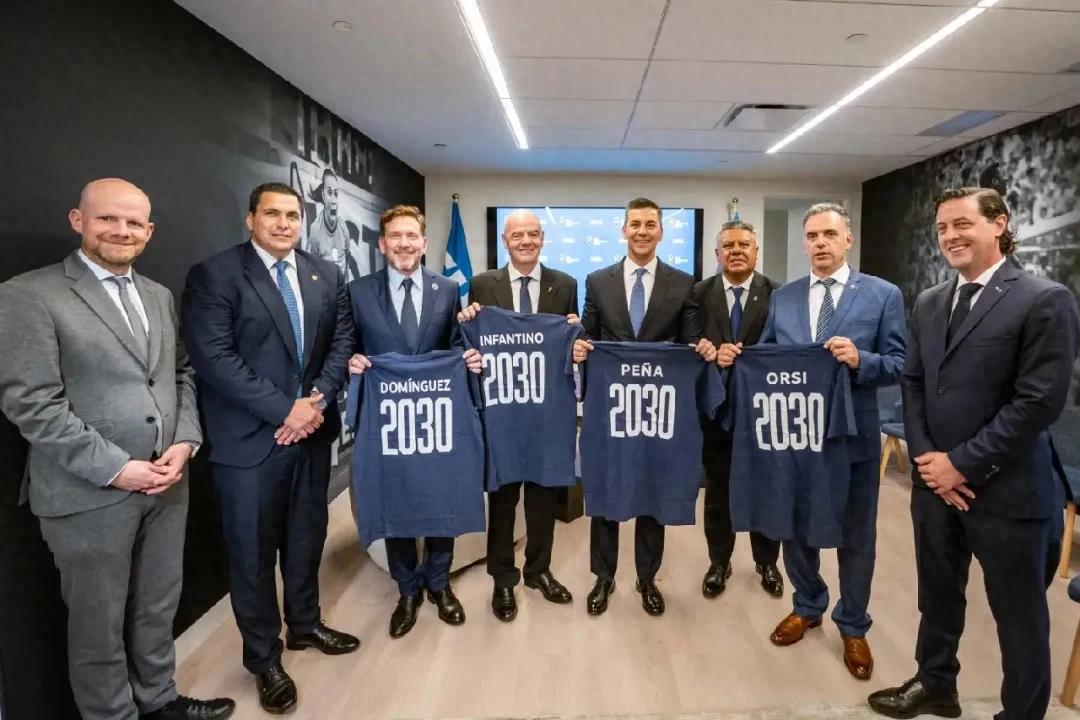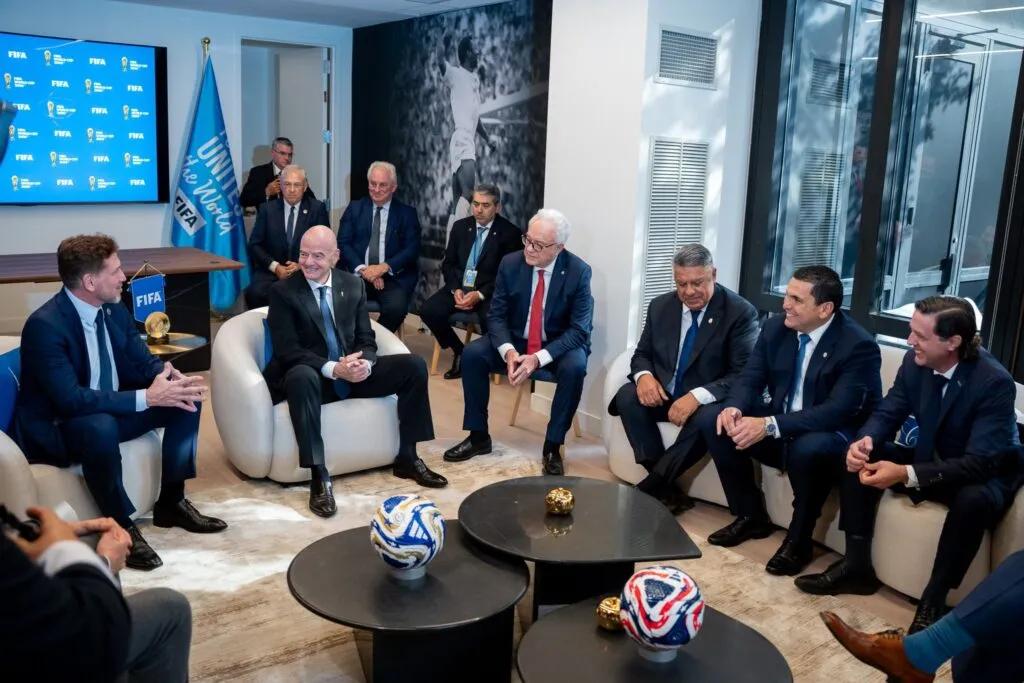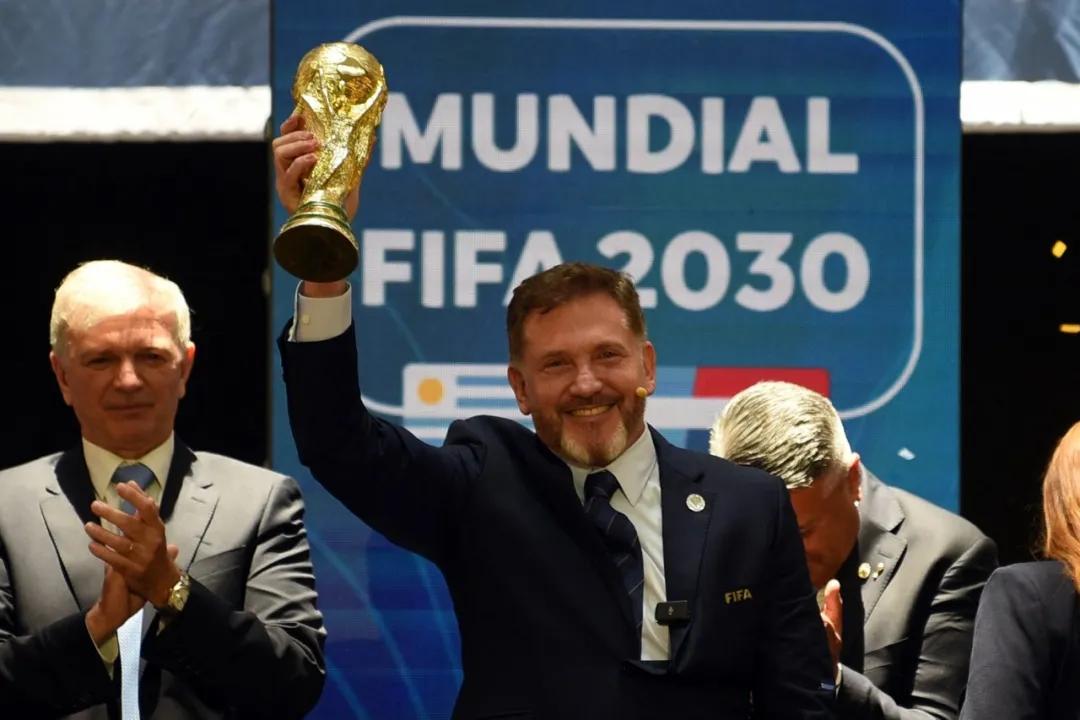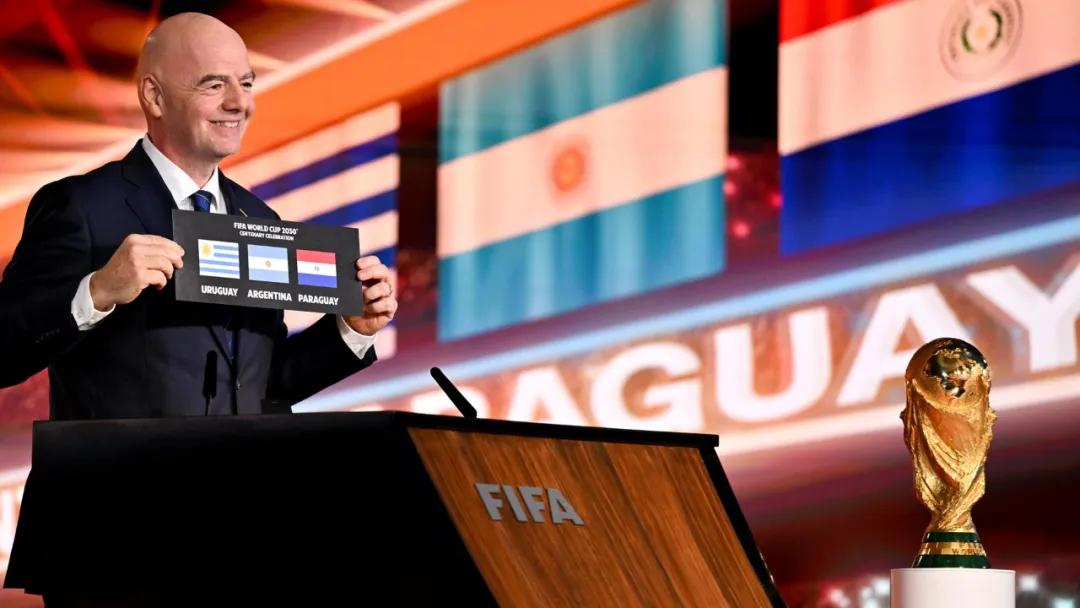Is the expansion of the 2030 World Cup to 64 teams one step closer to reality?

Written by Han Bing On September 23, at Trump Tower in New York, FIFA and CONMEBOL convened a crucial meeting that might change the course of World Cup history. The key agenda was the potential expansion of the 2030 World Cup to 64 teams — a proposal initially introduced by Uruguay’s FA President Alonso during the FIFA Council meeting in early March. At that time, FIFA responded by saying a feasibility study would be conducted first. Half a year later, this previously widely opposed expansion plan has made significant progress toward becoming a reality, largely driven by CONMEBOL’s persistent efforts.

CONMEBOL placed great importance on this special meeting focused on "expansion": besides early consensus and unanimous support from its 10 member associations, CONMEBOL President Domínguez, the presidents of the football associations of Argentina, Uruguay, and Paraguay, as well as Paraguay’s President Peña and Uruguay’s President Lacalle Pou, were all present. Notably, Argentine President Milei’s absence—who met with U.S. President Trump instead—sparked widespread dissatisfaction within Argentina’s football community and media.
Domínguez emphasized that the purpose of expansion is to make the 2030 World Cup “a historically significant event,” stating, “This should not be just another World Cup, but a once-in-a-century global football celebration.” Consistent with the stance in March, FIFA has yet to make a clear declaration, but President Infantino’s attitude is evidently more positive this time.

Argentina FA President Tapia revealed to Argentina’s “La Nación” that the “New York meeting” discussing expansion was convened at Infantino’s suggestion. Moreover, Infantino was seen warmly posing with South American representatives while holding a jersey printed with “2030” and his surname—a detail that clearly indicates his favorable inclination toward the expansion topic.
Currently, Infantino has begun reaching out to other continental federations and influential associations to seek their support. He also promised that if the expansion succeeds, FIFA will provide financial backing to comprehensively upgrade infrastructure in the three South American host countries (Argentina, Uruguay, Paraguay). For CONMEBOL, one of the core demands of expansion is upgrading the hosts’ roles from “each hosting one match” to “each hosting a full group stage.”
More details about the expansion proposal will be revealed at the FIFA Council meeting on October 2. However, it’s important to note that for the 64-team expansion to officially take effect, the earliest opportunity will be the FIFA Congress in December — when all 211 FIFA member associations will vote collectively. This means the next two-plus months will be a crucial lobbying period for CONMEBOL to push the expansion forward.


The move to expand to 64 teams is largely seen as compensation from Infantino to CONMEBOL. Previously, he publicly expressed a desire for the “centennial World Cup to return home,” and the South American bidders even set up a temporary headquarters during the 2018 Russia World Cup for comprehensive promotion, with Infantino personally attending to show support.
However, in 2023, Infantino “broke his promise” by strongly supporting Morocco from Africa joining the Spain+Portugal bid, realizing his vision of a “cross-continental World Cup.” At the FIFA Congress in December 2024, the Spain-Portugal-Morocco joint bid won, leaving the “betrayed” South American trio only symbolic compensation of “each hosting one match” — which is a key reason why CONMEBOL is particularly persistent about the expansion issue.

For CONMEBOL, the 64-team expansion plan offers clear advantages: first, dividing 64 teams into 16 groups simplifies qualification rules compared to the 48-team format, effectively preventing “fixed matches”; second, it resolves the travel difficulty of teams having to play one match in South America and then crossing the ocean to the northern hemisphere’s Spain-Portugal-Morocco, making the schedule more reasonable; third, the three South American hosts can not only each organize a group stage but also become seeded teams — increasing their hosted matches from one to six, truly becoming “genuine hosts” with both prestige and benefits.
It is worth noting that the scale of “six countries from three continents jointly hosting + 64 teams participating” makes the 2030 centennial World Cup “unique” — this is also the core reason Infantino persuaded other continental federations to support the plan. To this end, FIFA has already pushed for the “merging of international match windows”: starting in 2026, the October international window will be canceled, and the September window extended to three weeks with four matches scheduled. This move aims not only to reduce long-distance travel for players during national team duty but also to pave the way for fewer qualifiers after the World Cup expansion.


While CONMEBOL and Infantino actively promote the plan, UEFA, AFC, and CONCACAF presidents have all explicitly expressed strong opposition.
AFC President Salman believes that expanding to 64 teams crosses the “reasonable scale limit” for the World Cup. If this precedent is set, extreme proposals like expanding to 128 teams could arise in the future, which would be detrimental to the tournament’s value.
CONCACAF President Montaño pointed out that continuously expanding the World Cup size for two consecutive editions (48 teams in 2026 and proposed 64 teams in 2030) will impact player fitness and domestic league schedules — especially since the 48-team format has yet to be “tested in practice,” making hasty expansion very risky.

UEFA President Ceferin is the main opponent, and given Europe’s comprehensive dominance in world football (including economic strength, competition influence, and team quality), his stance will directly determine the fate of the expansion proposal.
However, Domínguez is confident about persuading UEFA — recent years have seen deepening cooperation between the two federations, laying groundwork for dialogue. UEFA has long aimed to ally with the second-strongest federation, CONMEBOL, to counterbalance Infantino; CONMEBOL has established an office in London, and both have jointly launched the men’s and women’s CONMEBOL–UEFA Cups (contests between European and South American champions), with plans for future club-level Europe-America competitions. This alliance gives CONMEBOL hope.
For Chinese football fans, the biggest concern is whether expanding to 64 teams will increase China’s chances of qualifying for the World Cup. Traditionally, a one-third increase in World Cup slots would mean Asia’s direct qualification spots could rise from the current 9 to 12, plus possibly additional intercontinental playoff spots — mathematically, every team’s qualification probability improves. However, it’s important to be realistic: simply relying on expansion may not guarantee the desired outcome, especially since China currently ranks only 14th in Asia.











 Links
Links
 Contact
Contact
 App
App


